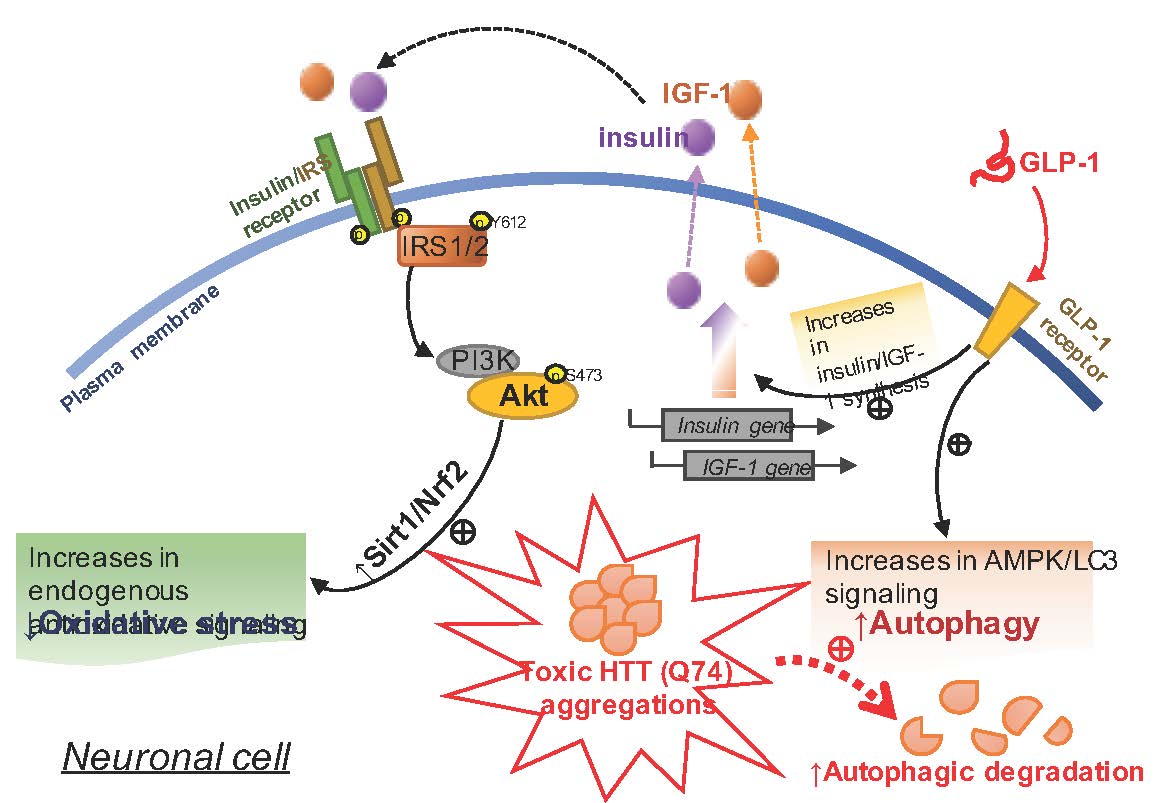Huntington's disease (HD) is a progressive and fatal neurodegenerative disease caused by CAG repeat expansion in the coding region of huntingtin (HTT) protein. The accumulation of mutant HTT (mHTT) contributes to neurotoxicity by causing autophagy defects and oxidative stress that ultimately lead to neuronal death. Interestingly, epidemiologic studies have demonstrated that the prevalence of type-2 diabetes, a metabolic disease mainly caused by defective insulin signaling, is higher in patients with HD than in healthy controls. Although the precise mechanisms of mHTT-mediated toxicity remain unclear, the blockade of brain insulin signaling may initiate or exacerbate mHTT-induced neurodegeneration. In this study, we used an in vitro HD model to investigate whether neuronal insulin signaling is involved in mHTT-mediated neurotoxicity. Our results demonstrated that mHTT overexpression significantly impairs insulin signaling and causes apoptosis in neuronal cells. However, treatment with liraglutide, a GLP-1 analogue, markedly restores insulin sensitivity and enhances cell viability. This neuroprotective effect may be attributed to the contribution of the upregulated expression of genes associated with endogenous antioxidant pathways to oxidative stress reduction. In addition, liraglutide stimulates autophagy through AMPK activation, which attenuates the accumulation of HTT aggregates within neuronal cells. Our findings collectively suggest that liraglutide can rescue impaired insulin signaling caused by mHTT and that GLP-1 may potentially reduce mHTT-induced neurotoxicity in the pathogenesis of HD.

